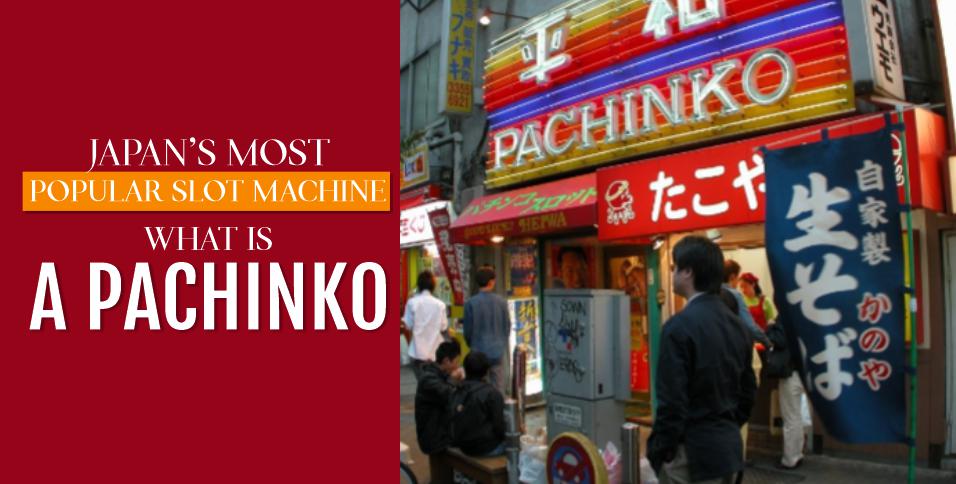Casinos in Japan are illegal. The only thing that is legal and available there is betting on certain types of races and lotteries. That’s why gamblers have come to love the pachinko, a slot machine that’s a cross between a regular money machine and a vertical pinball machine.
BestAuCasinosOnline talks about the history of pachinko, how it functions and the reasons for its popularity.
Slot machines in Japan
Today, when everyone has computers and games consoles at home, paying money to play a video game for five minutes may seem strange. But in those days, specialised slot machine hardware was capable of far better graphics than the home variants. Now that time has passed in the West, and in America, for example, slot machines are not very popular.
In Japan, however, these video games haven’t gone anywhere! On the contrary, multi-storey pay-per-play parlours are still in huge demand among locals, and so the Japanese continue to create new, interesting and unusual games in this format.
Japan is famous for its endless arcades, which thrill tourists with their bright lights, upbeat music and endless party atmosphere. The people of Japan themselves consider slot machines to be entertainment for all. You can find children and old people, men and women, businessmen and housewives in the arcade.
Perhaps one reason for the longevity of this pastime is that Japan has tiny flats, which are not very pleasant to spend time in when you’re awake. That’s why the country has all sorts of places where you can spend your free time, alone or with company. In addition to the restaurants, bars and cinemas you’re used to, there are karaoke clubs, onsenas and, yes, gaming parlours. One type of such lounge is Pachinko.
What are Pachinko machines and how do they work?
Pachinko machines are a slightly more complicated version of the pinball machine we are used to. To play, you have to buy special metal balls, pop them into the machine and shoot them into the playing field. Balls roll downhill, overcoming various obstacles. If they fall into the hole — the player wins and gets the winnings in the form of the same balls. Normally, for every ball that hits the target, you can get 15 more balls.
Pachinko has special holes for big winnings. When the balls get there, various numbers appear on the machine’s screen. If they form a winning combination, the player can get thousands, even tens of thousands of balls.
Pachinko has a lot of varieties. There are slot machines in which the player can not only influence the speed of the ball, but also regulate some intermediate obstacles on the field of the machine; there is a variation of the game called pachislo. It uses coin-operated machines; in the new pachislo there is a small LCD screen on the field, which shows the winnings and sometimes acts as a slot machine. Generally in the 1980s pachinko machines became computerised, with music and graphics added, making pachinko a more exciting game.
Despite the ban on gambling in Japan, there are no cash prizes in pachinko. Winning marbles can be exchanged for gifts at saloons. These can range from lighters and cigarettes to electronics and jewellery. However, in Japan there are special ‘exchange zones’ located away from the gambling establishments. There you can get money for prizes won at pachinko. They were created to get around the law that forbids receiving money directly from the halls and saloons.
How pachinko machines came to be
The history of pachinko machines dates back to the 1920s in Japan. Back then, these machines were children’s toys called Corinthian games and were located in candy shops. Children would play them and would get candy for winning.
The name of the game comes from the Japanese “pachi-pachi”, which means snapping. The provenance of pachinko is not known. Supposedly the first arcade with these machines was opened in Osaka in the early 1920s. Americans believe that this game is a form of pinball, which, of course, was invented in the United States.
Subsequently, this entertainment ceased to be exclusively for children. Adults also started to play, and the machines moved from confectionary shops to special pachinko parlours. The game grew in popularity, but during the Second World War all the halls were closed until 1948. After their reopening, a second wave of popularity began, which developed much more rapidly than the first. In 1953, more than 387,000 pachinko parlours were officially registered in Japan. Each of them had dozens of machines.
Pachinko machines were modernised in the 1980s. Before that, they were mechanical, but over time they were upgraded to use electricity.
What’s the secret of Pachinko’s popularity
Since casinos are not allowed in Japan, and betting is only allowed on horse racing, bicycle racing and boat racing, the game of pachinko is very popular. These machines peaked in popularity in the 1990s and 2000s. Today, however, these machines have somewhat lost their position. Despite this, the total number of such parlours in Japan stands at 16,000. About 15 million Japanese visit them every year.
In addition, 50 million Japanese play pachinko online. A virtual slot machine is virtually indistinguishable from a real one, with all the action adapted to the laws of physics. The winnings go straight to the bank card.
The Pachinko phenomenon has been discussed for many years by gambling theorists and dozens of psychologists. After all, it is impossible to explain why these primitive slot machines attract so many people. The Japanese themselves say that they play Pachinko because these slots help them relax, distract from their problems and have fun.
To play this authentic game, you’ll need to take a trip to Japan. In the meantime, you can play traditional slot machines at any mobile casino. Remember that gambling needs to be handled responsibly.
Also Read: Online Slots – Beginners Guide How to Choose the Right One















